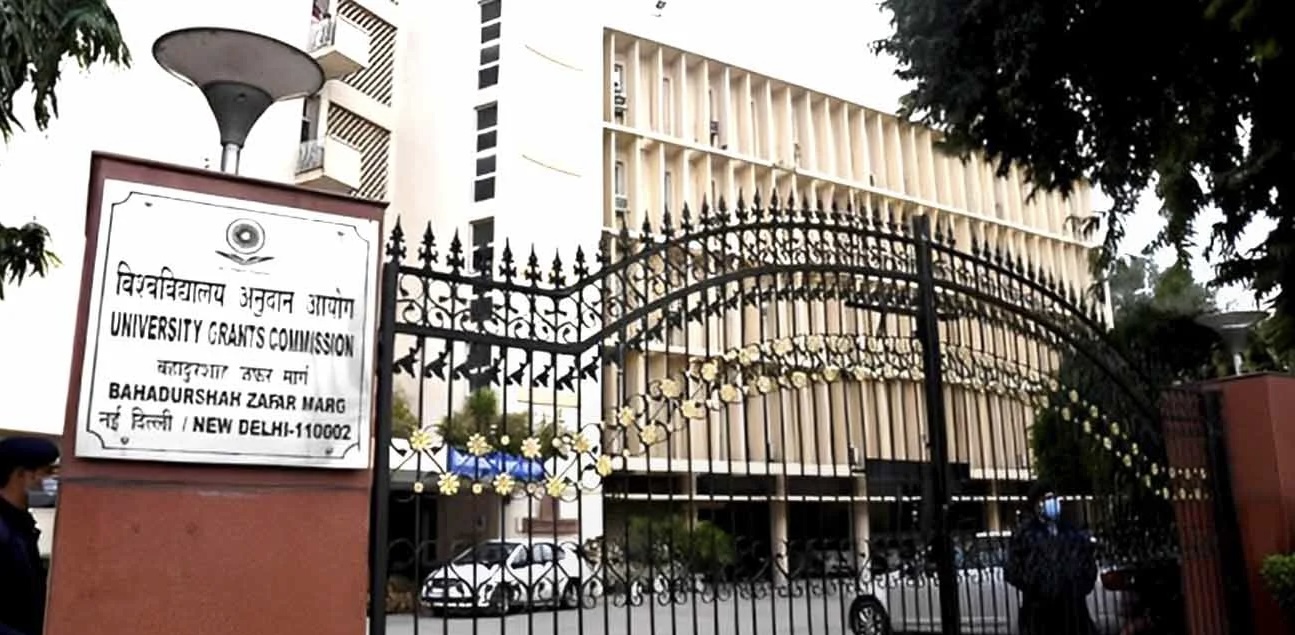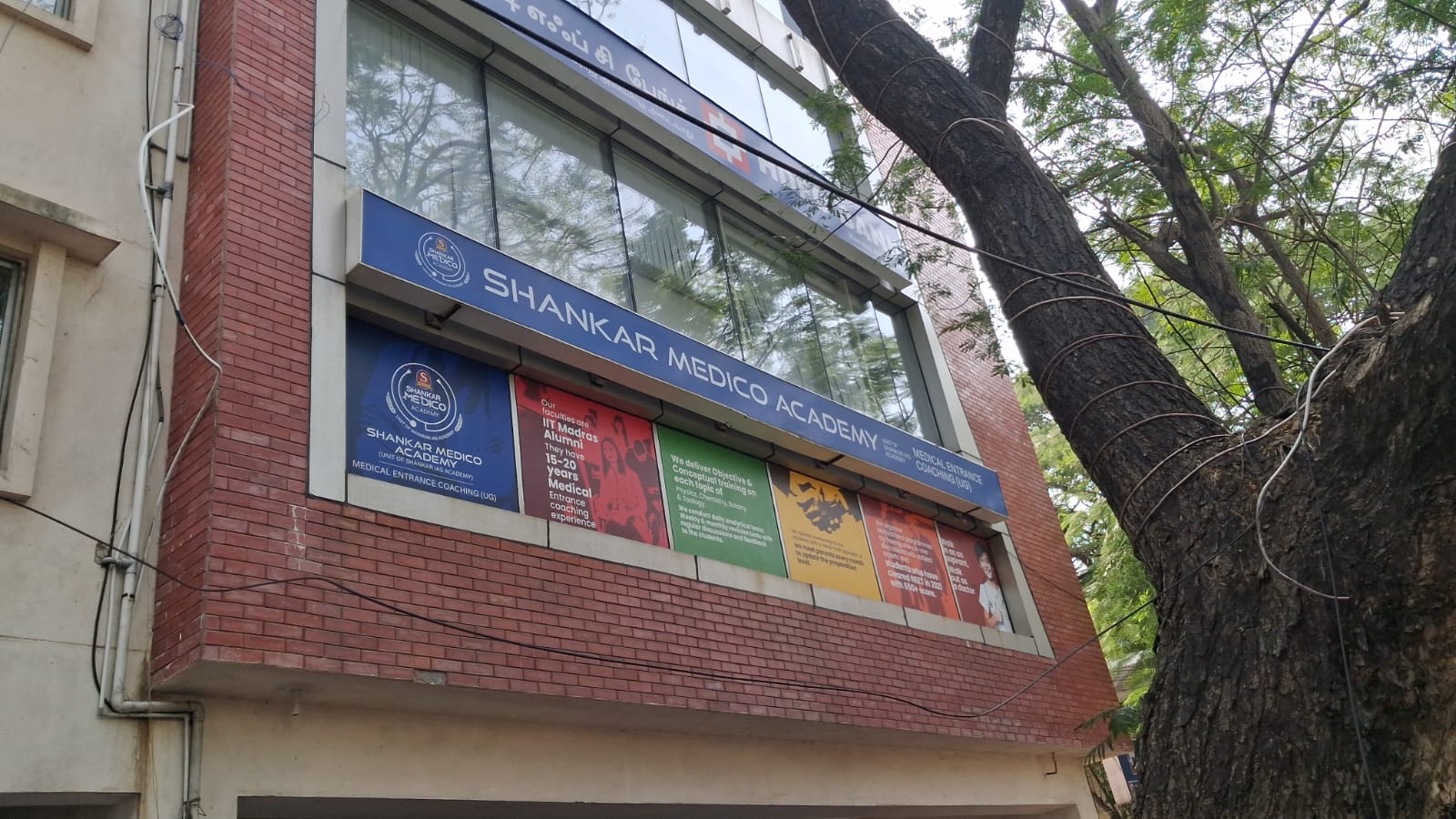As Tamil Nadu and five other states push back against the UGC’s new draft regulations, teachers and students find themselves caught in the crossfire of politics
Drishti Jain
Chennai: The new set of draft regulations released by the University Grants Commission (UGC) for the appointment of Vice Chancellors as well as for filling up academic and non-academic 2025, has sparked controversy in many non BJP – ruling states including Tamil Nadu.
As many as six states including Karnataka, Telangana, Kerala, Tamil Nadu, Himachal Pradesh and Jharkhand have adopted resolutions seeking withdrawal of the draft UGC, claiming it to be a step in an attempt to push RSS’ agenda of “one history, one tradition, one language.” A joint resolution calling for the repeal of the draft University Grants Commission (UGC) regulations, 2025 has also been submitted.
On February 6, this month, leader of Opposition in Lok Sabha and senior Congress leader Rahul Gandhi joined a protest organised by the DMK students wing against the new draft at Jantar Mantar in New Delhi. “I have been saying now for some time that the aim of the RSS is the eradication of all other histories, all other cultures, all other traditions in this country. That is their starting point, and that is what they want to achieve,” he said, as per a report by The Wire.

Tamil Nadu Chief Minister M.K Stalin in his letter to Union Minister for Education Dharmendra Pradhan argued that many provisions in the draft regulations may pose serious challenges to the academic integrity of the state universities. “We therefore request that the Ministry of Education withdraw the draft Bills under discussion and review these concerns to better align them with the needs of the diverse higher education landscape in India,” he said.
According to the UGC (Minimum Qualifications for Appointment and Promotion of Teachers and Academic Staff in Universities and Colleges and Measures for the Maintenance of Standards in Higher Education) Regulations, 2025, among other changes, the Vice Chancellor will now be appointed by a Search-cum-Selection Committee with a UGC nominee, a university nominee, and a Chancellor’s representative, which the states feel is limiting the state’s autonomy over education. It also lays the revised process for appointing teaching and administrative staff.
Since then, protests have erupted in many parts of Tamil nadu, by minters, student wings of political parties, teacher’s associations as well as university professors, questioning the need of the draft.
Gowtam, in his 20’s a political science graduate and a member of DMK’s student wing in Chennai believed that the central government wants to centralize education and economy.
“The party’s long standing demand has been to get the education subject back in the state list, and I stand by it,” Gowtam said. He said “We don’t need any central exams such as NEET, because students from other states may come here and take seats, we want full control of the education system because this give additional stress to our students,” he said quoting Anitha’s death who took her own life due to academic pressure in 2017, and had challenged NEET examination in the Supreme Court.
At the advent of the Constitution of India, the power sharing between the centre and state in the field of education was distinct. The centre under Entry 66 List I (Union List) was in-charge of coordination and determination of standards in institutions for higher education and the State under List II, had the power to deal with education including universities.
However, this equation changed drastically during the Emergency (1975-77) when the Indira Gandhi government introduced the 42nd Amendment, shifting education to the Concurrent List. This meant both the Centre and states could now legislate on education, significantly reducing state control.
Indian advocate and former judge of Madras High Court K. Chandru pointed out the dictatorial powers of the centre over education since the 1986 National Education Policy by the Rajiv Gandhi government was enrolled. “After the BJP came to power, their attempt to also capture the field of education at every level considerably increased. Even without the amendment of the state laws, the present Governor R N Ravi had returned the list of names recommended by the Search Committee (constituted by syndicate, senate and nominee of the state government) stating that he is not accepting any one of the names.”
He warned that the present UGC regulations have been brought in so that virtually the UGC will have the final say, since a UGC nominee in the selection committee is a must. “This will help RSS and BJP to bring in their own nominees and also virtually take over the control of all the state run universities,” he said.
PB Prince Gajendra Babu, founder and general secretary of the State Platform for Common School System, Tamil Nadu said, “Every university has its own act by the state legislature to function, so the UGC cannot overlap this.”
The draft reads, that universities failing to abide by the regulations will be penalised and debarred from any UGC schemes and to offer degree programmes. “ Which act in India gives the right to UGC to penalize a university? University is a separate entity,” he said.
According to the draft 2025, now even a ‘distinguished person at a senior level in industry, public administration, public policy,’ can also be a nominee for the VC position. It has also laid down the revised framework for hiring academic and non-academic in the vacant posts, allowing teachers to be hired on a contractual basis.
However, Gajendra Babu strongly discouraged this. “If you put an industrialist in place of an academician, he/ she will look for cost- effective measures, abandoning the small nitty-gritties required to run a university,” he said.
Dr. I. Arul Aram, President, Anna University Teachers’ Association opposed the hiring of teachers on contractual basis. “The teaching quality will diminish, because the teachers might become disengaged and leave as and when they get better opportunities, our students will suffer.”
He is also against the idea of appointing the VC for a period of 5 years instead of 3 years as earlier was the rule. “The logic is that a person works for three years with full energy, but after that he becomes dull and doesn’t have the same energy. If the VC turns out to be a corrupt and biased one, the whole system gets spoiled.”
On the other hand, some academicians have welcomed the UGC’s move, seeing it as a step in the right direction. They blame the political parties for having politicised education.
Prof Balagurusamy, former Vice Chancellor, Anna University said, “ It’s nothing new. The Governor always had the power of opinion to appoint VCs earlier also, in Tamil Nadu as well. The disapproval from the state is purely political in nature. Even my appointment was signed by the Chancellor.”
He pointed out the consequences of this political standoff . “ There is still no VC in many universities in the state for a long time. How will the institution work in this vacuum? There is indiscipline in the professors as well as the students,” he said.
The few universities namely University of Madras, Bharathiar University, Madurai Kamaraj University and Tamil Nadu Teacher Education University are still without the VC, as per reports by The Hindu and Hindustan Times.
Beyond the issue of VC appointments, he considered the provision to appoint teachers on a contractual basis as a positive step. “ There have been so many vaccines in professor positions but the state fails to act. Contract based professors will help fill the posts till the time a suitable one is found permanently,” he said.
Another provision of the new draft now requires every student to take an entrance test to apply for either a UG or a PG course. Balaguruswamy supported the move, emphasizing that both aptitude and knowledge is necessary to pursue a degree. “This will also give feasibility to people, who can study whenever they want to, they just need to pass the entrance exam.”
Backing this view, Prof Dr. Gayathri, Senate member of the Bharathiar University said,” the government sometimes forget that this is education and not politics. Many students’ lives are dependent on their decision.”
Gayathri also stressed that the new regulations shouldn’t be rejected completely but rather seen in its entirety. “ Immediately, overnight not all the industrialists are going to apply for the VC post. If there is a provision, it is backed by a due process and thorough checks and balances,” she said.
The Higher Education Department of Tamil Nadu refused to provide any information, stating it as an ongoing discussion within the department.
As the debate over the UGC’s new draft regulations intensifies, the divide between the Centre and state governments continues to widen. While some see it as a positive step in streamlining higher education, other stakeholders see it as a move to curtail state autonomy and impose ideological control.
However, between this tussle, the fate of the universities remains uncertain. Whether these regulations will be accepted or challenged in courts, could shape India’s education system.




